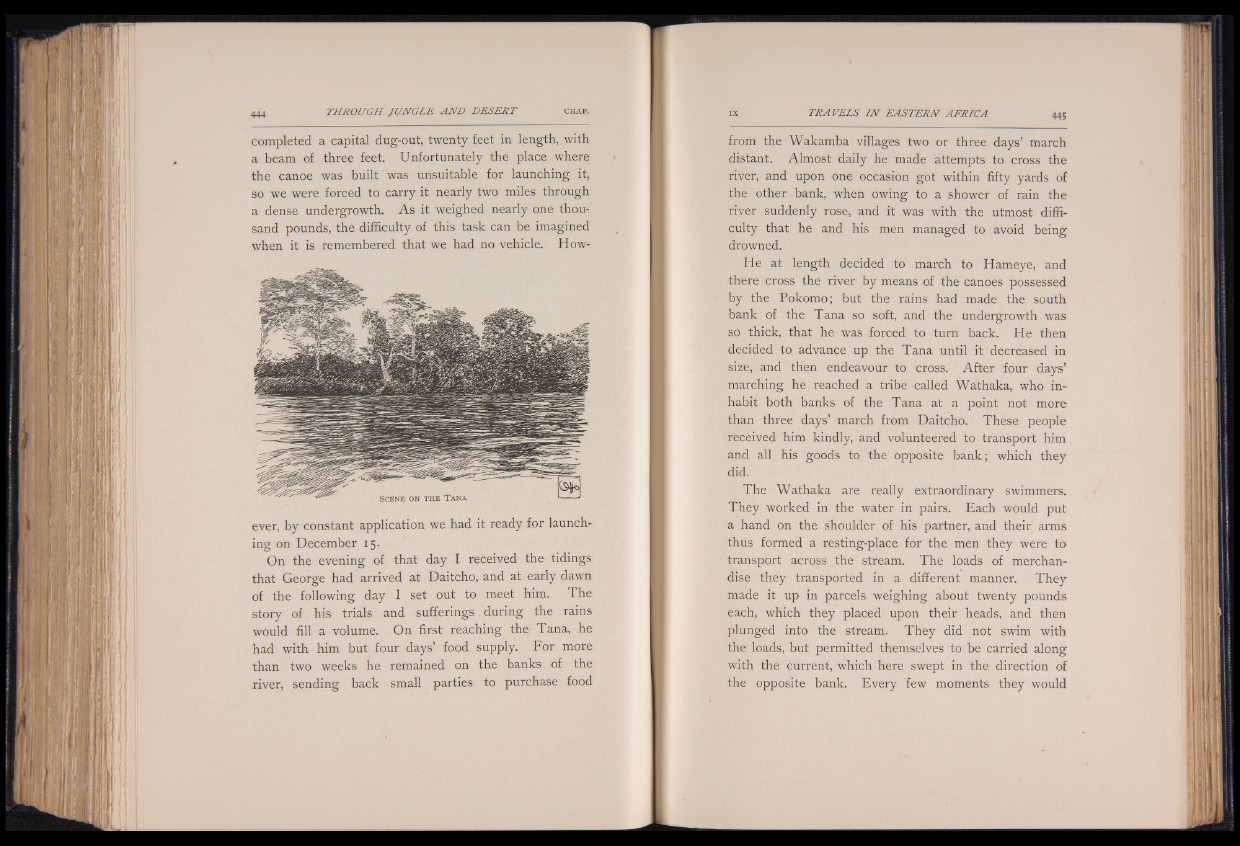
completed a capital dug-out, twenty feet in length, with
a beam of three feet. Unfortunately the place where
the canoe was built was unsuitable for launching it,
so we were forced to carry it nearly two miles through
a dense undergrowth. As it weighed nearly one thousand
pounds, the difficulty of this task can be imagined
when it is remembered that we had no vehicle. Howfrom
ever, by constant application we had it ready for launching
on December 15.
On the evening of that day I received the tidings
that George had arrived at Daitcho, and at early dawn
of the following day I set out to meet him. The
story of his trials and sufferings during the rains
would fill a volume. On first reaching the Tana, he
had with him but four days’ food supply. For more
than two weeks he remained on the banks of the
river, sending back small parties to purchase food
the Wakamba villages two or three days’ march
distant. Almost daily he made attempts to cross the
river, and upon one occasion got within fifty yards of
the other bank, when owing to a shower of rain the
river suddenly rose, and it was with the utmost difficulty
that he and his men managed to avoid being
drowned.
He at length decided to march to Hameye, and
there cross the river by means of the canoes possessed
by the Pokomo; but the rains had made the south
bank of the Tana so soft, and the undergrowth was
so thick, that he was forced to turn back. He then
decided to advance up the Tana until it decreased in
size, and then endeavour to cross. After four days’
marching he reached a tribe called Wathaka, who inhabit
both banks of the Tana at a point not more
than three days’ march from Daitcho. These people
received him kindly, and volunteered to transport him
and all his goods to the opposite bank; which they
did.
The Wathaka are really extraordinary swimmers.
They worked in the water in pairs. Each would put
a hand on the shoulder of his partner, and their arms
thus formed a resting-place for the men they were to
transport across „ the stream. The loads of merchandise
they transported in a different manner. They
made it up in parcels weighing about twenty pounds
each, which they placed upon their heads, and then
plunged into the stream. They did not swim with
the loads, but permitted themselves to be carried along
with the current, which here swept in the direction of
the opposite bank. Every few moments they would